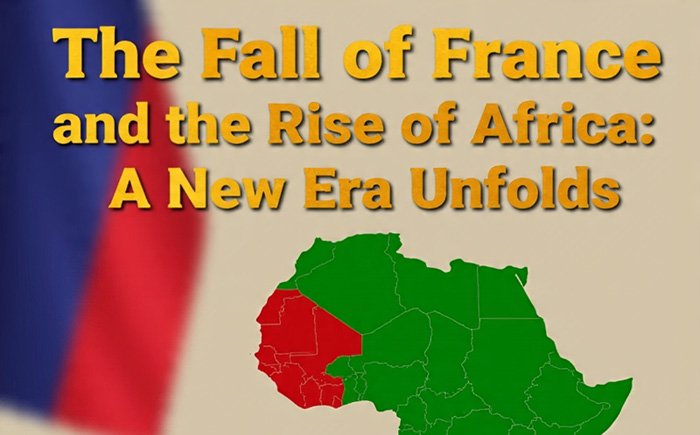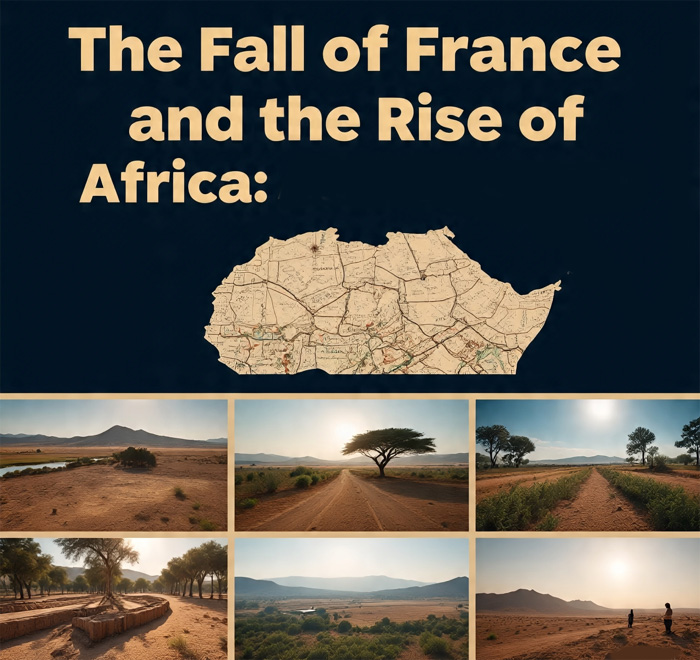
Africa is witnessing a seismic shift in its relationship with former colonial powers, particularly France. For decades, France maintained a stranglehold on its former colonies through a system known as Françafrique, which perpetuated economic exploitation, political interference, and cultural domination. However, the tides are changing, and Africa is asserting its independence.
The recent coups in Mali, Burkina Faso, and Niger, which ousted pro-French regimes, mark a significant turning point in Africa's struggle for sovereignty. These nations have formed the Alliance of Sahel States (AES), a regional bloc that challenges the traditional dominance of France and other Western powers. The AES has also gravitated towards Russia, seeking military cooperation and economic support.
The collapse of Françafrique has significant economic implications for Africa. The CFA franc, a currency imposed by France on its former colonies, has long been a symbol of neocolonialism. Many African nations are now seeking to break free from this currency, which limits their monetary sovereignty and binds them to French economic policies.
With the decline of French influence, Africa is diversifying its economic partnerships. China has emerged as a major player, investing heavily in infrastructure projects and becoming Africa's largest trade partner. The African Continental Free Trade Area (AfCFTA) is also expected to boost intra-African trade and economic integration.

Several African nations are emerging as regional leaders, including (https://www.nofi.media/en/2025/02/francafrique-announced-divorce/93092),(https://www.britannica.com/place/western-Africa/The-fall-of-the-African-kingdoms):
- Nigeria: As Africa's largest economy, Nigeria is asserting its influence in West Africa through its growing economy, finance, and energy sectors.
- Morocco: With strategic investments in sub-Saharan Africa, Morocco is driving economic growth and diplomacy in the region.
- South Africa: As a major economic hub, South Africa is playing a key role in shaping Africa's economic agenda.
- Egypt: With its growing economy and strategic location, Egypt is becoming an important player in Africa's economic landscape.

The decline of French influence is also leading to a cultural renaissance in Africa. African languages, such as Swahili and English, are gaining prominence, while French is gradually losing its dominance. African media outlets, such as Al Jazeera and Africanews, are taking control of the narrative, challenging the traditional Western perspective.
While the rise of Africa presents many opportunities, there are also challenges ahead. The continent needs to:
- Diversify its economy: Africa must reduce its dependence on raw material exports and develop its manufacturing sector.
- Invest in human capital: Education, healthcare, and skills development are crucial for Africa's growth.
- Promote regional integration: Strengthening regional blocs like the African Union and the Economic Community of West African States (ECOWAS) will help Africa achieve its economic potential.
In conclusion, the fall of France's colonial legacy and the rise of Africa mark a new era of independence and self-determination for the continent. As Africa navigates this transition, it must assert its interests, diversify its economy, and promote regional integration to achieve its full potential.(https://www.energyintel.com/00000191-d75b-dd10-af93-f77f22330000)
This has been The Red Hot Report from Pepper-Room. The news that bears it all.
www.pepperroom.com.ng
#pepperroomnews #pepperroomng #pepperroom
Lagos, Nigeria.
+234 913 161 4181
+234 803 961 8550
+234 802 321 3873
info@pepperroom.com.ng
© 2025 | 🌶️Pepper-Room - Everything Loud, Wild, and Worth Talking About. | All Rights Reserved.
Pepper-Room is not responsible for the content of external sites.